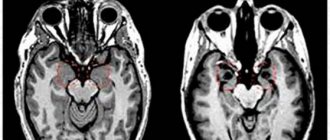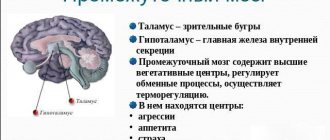Yesterday is early, today there is no time, tomorrow it is late. We are always waiting for the right moment to make our dreams come true. Either there is no time or knowledge, or the circumstances are not the same. Famous people had similar problems. Everyone got out as best they could. Thus, resentment and hatred for the band Metallica drove forward the founder of the American metal band Megadeth Dave Mustaine, the French writer Victor Hugo cut his hair unsightly to eliminate the desire to go out and finish his novel on time, and composer Ludwig van Beethoven stimulated activity by dousing him with ice water. Nowadays, it is not necessary to resort to such radical methods. It is enough to analyze the latest achievements in the field of neuropsychology, slightly adjust your behavior and enjoy the result.
As we already know from the previous article, there are two opposing parts living within us. A representative of the ancient brain, let's call him Zhrulkin (he wants everything now), and the young brain - Rationalov (thinks about the future). Due to the fact that Rational consumes more energy and is less responsible for survival and procreation, Zhrulkin more often dominates us. The usefulness of Zhrulkin has been proven by millions of years of incredible human survivability. He makes sure we work less, eat more, and motivates us to have sex. There are exceptions, and a person can control Zhrulkin from childhood, but not everyone is so lucky. Therefore, most people need various tricks in order to relegate it to the background. Let's consider the most effective methods.
Use the brain's weakness for unfinished actions
Once you start, you will be unstoppable. The brain is drawn into work. After all, unfinished business irritates him terribly. This was confirmed in his research by psychologist Kennett McGraw. The subjects were given a puzzle and, when everything was almost ready, they were asked to finish. There was no rational point in continuing to put the puzzle together, but 90% of the participants stayed to complete the work.
Advertising on Forbes
A similar effect occurs when reading an uninteresting book or watching a movie. There is no point in continuing, but unconsciously I want to finish reading or watching. To use the method for your own selfish purposes, it is enough to get the ball rolling, for example, by working in a group of like-minded people.
Further, the effect of an unfinished action will constantly push you to work.
Change your mental attitude
A patient of American psychiatrist Milton Erickson could not maintain her weight at 60 kg. As soon as the cherished figure was reached, the girl returned to her usual 80 kg. Erickson warned that the treatment would be painful, and the patient agreed. He made her increase her weight from 80 to 90 kg. The girl threw hysterics, cried, but gradually recovered to 90 kg.
And then, with incredible relief, I began to reduce it and quickly reached 60 kg. The secret of success is changing the psychological attitude from “lose weight - gain weight” to “gain - lose weight”. The fear of overcoming this horror again allowed me to consolidate my success and not gain any more weight. Many people are also familiar with the problem of skipping workouts: today I’ll cancel the lesson, but next time I’ll go 100%. And the next day you don’t go, making a new promise to yourself. The solution would be to change the attitude “if I don’t go today, I’ll go tomorrow” to “if I don’t go today, I won’t go tomorrow.” Promise yourself that if you miss class today, you will forget about sports for two weeks. And doing this is more difficult than postponing it until tomorrow. This way you will get rid of the standard excuse and stop feeding yourself breakfast.
How to make your brain work: what will help improve your mood and performance in the summer
Physical activity will help improve your mood and improve your performance.
Photo: Valery ZVONAREV
SHOULD I WAIT FOR THE MAGIC PILL?
“A magic pill that you can take and immediately, as they show in science fiction films, learn a new language, master the piano or write a book - today, of course, does not exist, and it is unlikely that it will appear,” smiles Candidate of Medical Sciences, researcher Laboratory of Fundamental and Applied Neurobiology of the Center for Addiction and Psychiatry named after. Serbsky, psychiatrist Anna Morozova. — If you want to “pump up” your brain, improve your memory, mood, and increase your performance, you will have to work hard yourself.
Although, some support can be obtained thanks to certain natural substances, the expert is pleased. How to make the brain work - the expert spoke about scientifically proven ways to invigorate it without harm to health in the “Myth Hunters” program on radio “KP” (fm.kp.ru).
JOY ON LOAN
— Anna, most residents of large cities today complain of problems with memory and concentration, being in the prime of life. It’s too early for senile dementia and serious medications, but at the same time, the fashionable topic now is nootropic drugs that seem to improve brain function. Do they really work?
— If we talk about a more or less healthy person under 60-65 years old, then improvement of memory and cognitive (that is, thinking) abilities in the case of taking currently known nootropic drugs has not been clearly proven. That is, there are no results of large-scale scientific studies that would clearly confirm: yes, nootropics significantly improve the brain function of healthy people.
As for the emotional sphere, there are many psychostimulant drugs that improve mood, give optimism, and a person seems to have a lot of strength to do something (although the cognitive boost is actually low). But as a psychiatrist, I want to warn you: if you do not have medical indications, that is, obvious violations when such drugs are objectively required (for example, for depression), then you will receive joy and inspiration on credit. That is, as soon as you stop taking the pills, the brain will have to adapt to the fact that nothing feeds it from the outside. You will need to restore your own production of neurotransmitters - hormones of joy, satisfaction, etc. At the same time, the receptors, accustomed to increased doses of such hormones, will initially poorly perceive their natural amount, and the person will be tormented by a feeling of apathy, melancholy, depression and other depressive-like manifestations.
5 Rules for Keeping Your Mind Clear
Photo: Dmitry POLUKHIN
DRINK COFFEE AND GREEN TEA AT WORK
“At the same time, there are natural substances that, in reasonable quantities, safely stimulate the functioning of our brain - improve concentration and increase performance,” continues the expert. — Essentially, these are natural nootropics that act, albeit for a short time, but they can be taken regularly without harm to the body (unless, of course, there are individual contraindications for health reasons).
So, the mental functioning of our brain has been proven to improve:
- tea, especially green tea - due to the content of theanine (or L-theanine) - an amino acid that can improve concentration;
- coffee - due to the action of caffeine, which can also stimulate attention, thereby increasing performance;
- Rhodiola rosea - studies have proven that the substances salidroside, rosavin and rosarin included in this medicinal plant have a stimulating effect on the central nervous system;
- curcumin is a natural dye contained in the roots of the turmeric plant, found in the form of curry seasoning; One of the manifestations of its biological activity is a mild antidepressant effect.
Tea improves mental activity
Photo: Evgenia GUSEVA
IMPORTANT
From positivity to irritability one step
“All these substances have a positive effect on brain function, improve concentration, motivation, and generally increase performance, but appropriate doses must be determined individually,” emphasizes psychiatrist Anna Morozova. - If you overdo it - say, drink not two cups of coffee during the day, which are optimal for you, but three, then instead of concentrating, you can get overexcited and irritable, which will only harm work and communication in general. So choose “your” dose experimentally, focusing on your own condition and feelings; there is no single standard for everyone. In this regard, your own body will tell you how to make your brain work.
BRAIN AND SUN
— When we had prolonged rains and not enough sun - and autumn is ahead, and it will happen again - there was talk that a wave of “summer-autumn depression” was covering our country. Is this an exaggeration or is it really justified and something needs to be done to support the brain in bad weather?
— If a person is mentally absolutely healthy, then his brain flexibly adapts to a variety of weather changes, there is no reason to worry. But many of us live in conditions of constant stress and overload, and because of this, we perceive weather fluctuations too emotionally, perhaps in a state of depression. On the other hand, it is known that with a lack of sunlight in the body, a deficiency of vitamin D may occur, which is necessary to ensure normal transmission of nerve impulses in the brain. A lack of this vitamin increases the tendency to depression.
ADVICE
If you don’t have the opportunity to go to sunny resorts, you have to work from early morning until late evening, seeing the sun only outside the window, then lean on foods that contain brain-healthy vitamin D, as well as B vitamins and Omega-3 acids, advises expert. Sources of such valuable substances are fatty sea fish (halibut, herring, mackerel, saury), green vegetables, legumes (beans, peas, soybeans), avocado, spinach.
BY THE WAY
Closer to autumn and winter, when daylight hours are shortened, the synthesis of serotonin in our body, which is often called the “hormone of joy,” says Anna Morozova. Because of this, people, especially those weakened by stress and overwork, may experience seasonal depressive-like states - melancholy, apathy, depression, lethargy. One of the simplest and safest ways to cope with such troubles is light therapy. “The patient is located next to a special source of white light, the session lasts from 15 to 45 minutes,” explains the doctor, “the light hits the retina of the eye, and mechanisms are launched that normalize the synthesis of serotonin. As a result, the person begins to feel better.”
HOW TO NOT BE DUMB ON VACATION
— Anna, please advise: what is the best rest for the brain?
— For the brain, rest is a change of activity. If a person works and works and feels that his “brain is tired,” then it is best to change his activity to another - for example, take up some hobby: drawing, solving crosswords, trying a new culinary recipe. It's much better than just lying there and doing nothing. It’s the same on vacation: even if you have chosen the option of a purely beach holiday, try to train your brain at least a little to keep it in good shape: read, learn a foreign language little by little - at the same time, you will immediately practice communicating with the local population.
Even on vacation, it is advisable to give your brain work
Photo: Evgenia GUSEVA
But as for the constant flow of information, news - on TV and on the Internet, our expert, a psychiatrist, recommends taking breaks and from time to time, if possible, completely disconnecting, at least for a short time. The fact is that the continuous flow of large amounts of information leads to stress. “Our brain is evolutionarily designed in such a way that when we receive information, the work of making decisions automatically begins,” explains Anna Morozova. “And a constant flow of requests - regardless of whether the information is positive or negative - leads to overload, stress, and uncontrolled stress leads to various disorders of the anxiety-depressive spectrum. It is believed that this is one of the explanations for the increase in the incidence of depression in modern people.”
In a word, what is fashionably called a “digital detox”, but simply temporarily turning off all gadgets on vacation or on the weekend will definitely not harm you.
TOTAL
5 Steps to Improve Brain Function
1. Eat the “right” foods, the most beneficial for the brain - those containing omega-3 acids, vitamins D and group B (see text).
2. Try to maintain a more or less constant sleep and wakefulness pattern. It is advisable to go to bed and get up on weekends at least no more than one and a half to two hours later than on weekdays. The brain gets used to a certain schedule and works best when this schedule is not disturbed, experts explain.
3. Physical activity is required! They not only improve blood circulation throughout the body and in the brain. Studies have shown that reasonable physical activity increases the synthesis of the so-called brain-derived neurotrophic factor - it protects our brain from stress, improves the state of all types of memory, and also increases concentration.
4. Learn new skills. Learning foreign languages is considered the most effective: it has been proven to reduce the risk of Alzheimer's disease.
5. Strive to get rid of bad habits: stop smoking, which leads to inflammation of the walls of blood vessels, including in the brain, and do not abuse alcohol. According to the recommendations of the International Association of Specialists in the Field of Addiction Medicine, up to two glasses of dry red wine per day for men and no more than one glass for women several times a week are considered relatively safe (in the absence of contraindications).
Juicy news
5 rules for making your brain improve your mood and performance
A researcher at the Center for Addiction and Psychiatry named after KP spoke about the most important and scientifically proven ways to support the brain. Serbian Anna Morozova
Make the first step as easy as possible
It's often difficult to get started because you think about how long it might take. The brain draws terrible pictures of a temporary apocalypse. Shuddering with horror, we try to push this terrible moment as far as possible. An effective anti-apocalyptic solution would be to split the problem into a number of small, harmless, and sometimes tasty ones. No need to do a thesis.
Plan to make a title page, table of contents, or introduction. It is best that the first step takes no more than 20 seconds. Thanks to the butterfly effect, a small action can lead to incredible results.
How Dali lost focus
The famous surrealist artist Salvador Dali used an interesting technique to look for ideas for paintings. He sat down in a comfortable chair, relaxed and closed his eyes. In his hand he held a bunch of keys. Dali fell into a half-sleep, his body relaxed.
At some point, the hand released the keys, and a loud sound from their fall woke up the artist. He immediately began to create so as not to forget the ideas he received in the state between sleep and wakefulness. The inventor Thomas Edison used the same technique.
Salvador Dali forced the transition from a focused to a relaxed brain mode
Develop neural connections
The brain doesn't like to do anything new. From his point of view, this can be unsafe and very energy-consuming. A new activity differs from a habitual one in the smaller number of neural connections in the brain. And in order to develop new connections, you need to constantly practice.
The practice of visualization copes well with this task: the brain does not care whether you are actually doing the work or just imagining yourself working on a new task.
In both cases, new neuropathways will be built. Australian psychologist Alan Richardson was able to prove the effectiveness of visualization by conducting research on basketball players.
Only by visualizing their training with throwing the ball into the basket, the players were able to improve their results. During the same time, the progress of the players who trained in the gym was not much better. If you do not have the willpower to begin the daily necessary actions, mentally imagine that you are doing this, and most importantly, with pleasure. Only the necessary neural connections will be developed in at least 45 days, but with each repetition it will be easier and easier for you to act.
Train your willpower
Success in life depends on willpower. Research by Professor Casey of Psychobiology from Cornwall University clearly proves this. Casey offered the children marshmallows, but with a condition: if they wait 15 minutes, they can get another sweet. Some children could not cope with the temptation and ate the marshmallows right away. After 40 years, the professor decided to find out the fate of the children and saw that those who passed the test and did not eat marshmallows turned out to be more efficient, moderate in their diet and less susceptible to the influence of bad habits. But there is good news for the weak-willed: willpower can be trained.
You can follow the path of physicist Nikola Tesla, who deliberately refused desserts in favor of those around him, thus developing willpower. Or start meditating. After all, meditation suppresses the ancient impulsive brain, reducing stress, anxiety and fear. Meditation activates the frontal lobes, which are responsible for willpower, improving attention, memory, concentration and creativity. Five to ten minutes of meditation a day is enough to develop self-control.








